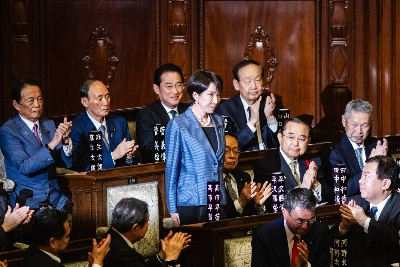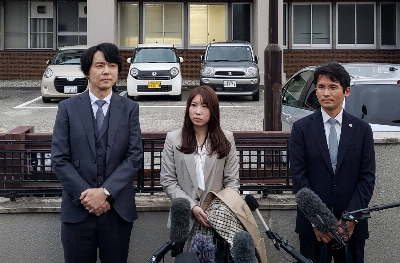Chinese Vice President Xi Jinping was appointed vice chairman of the Chinese Communist Party's Central Military Commission during the Fifth Plenary Session of the 17th CCP's Central Committee — a four-day event which ended on Monday. The appointment set the 57-year-old Mr. Xi, who now holds the No. 6 position in the party, on track to succeed President Hu Jintao in 2013.
The meeting, which was convened mainly to discuss China's new five-year economic plan, took place shortly after the Norwegian Nobel Committee announced on Oct. 8 that it would award the Nobel Peace Prize for 2010 to Mr. Liu Xiaobo, an imprisoned Chinese human rights activist. During the plenary session, people in several places in inland China held fierce anti-Japanese demonstrations, following the arrest in September by Japan of a Chinese fishing boat captain for allegedly ramming his boat against two Japan Coast Guard patrol ships inside Japanese territorial waters near the Senkaku Islands of Okinawa Prefecture.
China reacted strongly to Norway in protest against the Peace Prize decision. It also showed an unexpectedly strong attitude toward Japan over the Senkaku incident. Since China has entered a period of leadership transition, it may be unable to afford to take any move that can be interpreted by Chinese officials and people as being diplomatically weak. But China should be aware of its responsibility as an important player in the international community in view of its economic and military power.


















With your current subscription plan you can comment on stories. However, before writing your first comment, please create a display name in the Profile section of your subscriber account page.